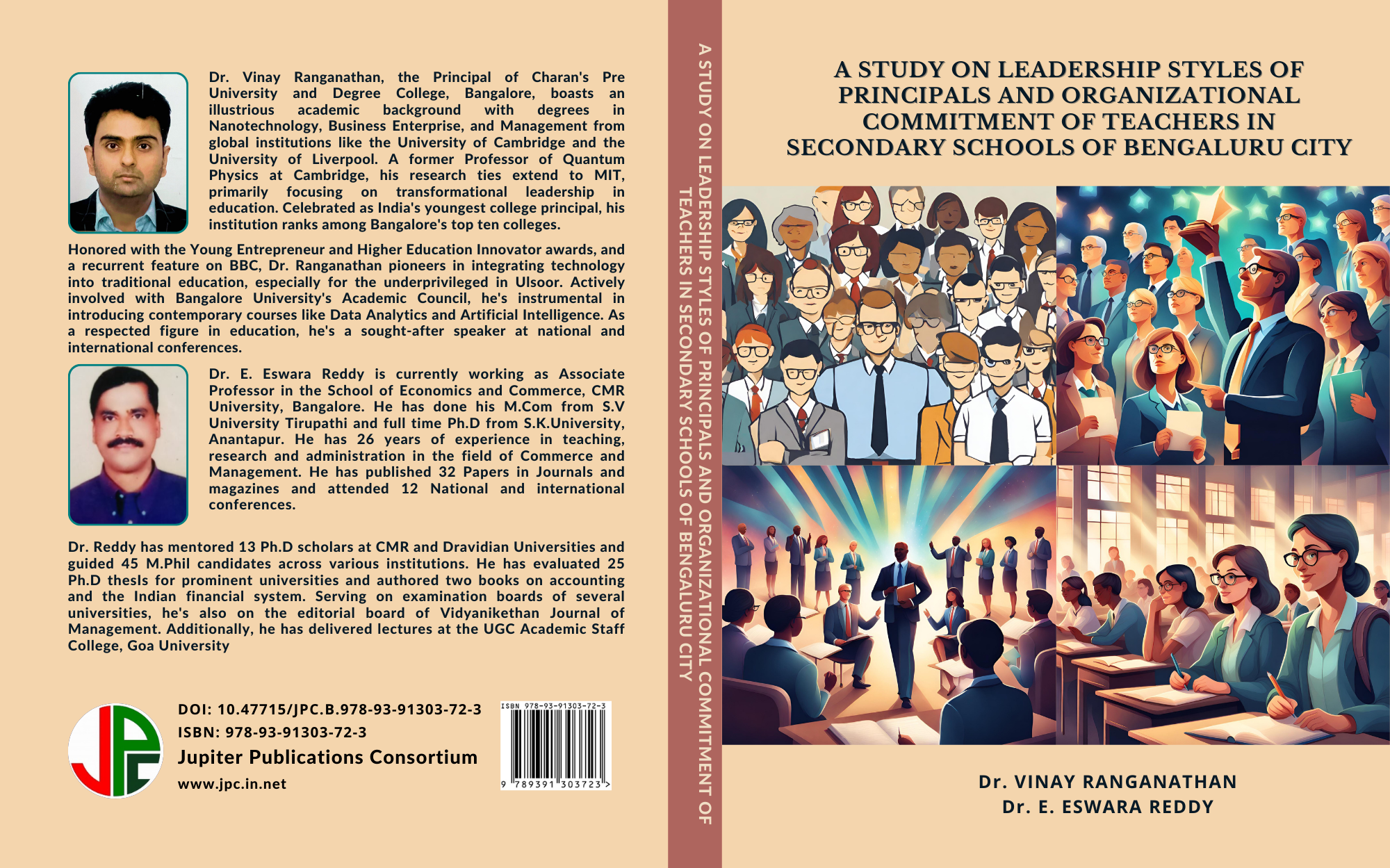Abstract
The problem statement of the study was to compare the educational leadership behaviours of government and private school principals in Bengaluru city and to understand the organizational commitment of teachers in relation to demographic variables. The objectives were i) to study perceptions of secondary school teachers on the leadership styles of their Principals ii) to compare the differences in leadership attributes between government and private school principals in select schools of Bengaluru city iii) to study the influence of demographic variables on the organizational commitment of the teachers iv) to provide valuable suggestions to policy makers on building a successful institution to get better results The sample of the study was drawn using random sampling technique from 56 schools and consisted of 384 teachers: 107 teachers from government and 277 teachers from private high schools in Bengaluru city (urban district). The theoretical backdrop of the research was based on transactional and transformational leadership theories. Modified versions of the multifactor leadership and the organizational commitment questionnaire was used for the study. Statistical analysis using mean, standard deviation, independent samples ‘t’ tests, one-way ANOVA and confirmatory factor analysis was used for analysis of data.
The major findings of the study were that i) differences on certain attributes were observed in both transactional and transformational leadership styles between government and private school principals. ii) ‘Critical thinking’ and ‘participative’ were the styles of leadership practiced in government schools. iii) ‘Micromanagement’ and ‘charismatic’ were the styles of leadership practiced in private schools iv) personal variables like gender and age were found to have significant impact on organizational commitment of teachers iv) academic variables like experience and educational qualifications were found to have significant impact on organizational commitment of teachers.
Separate leadership models for both government and private schools were developed by the researcher highlighting important attributes that lead to the growth and the success of an organization. The study has also provided principals with an overview on what factors affected the teacher’s commitment in their schools and how they could effectively modify their leadership style to improve efficiency in teaching and learning. Suggestions are provided separately for policy makers in the government and for private managements on approaches to improve effective leadership in government and private schools
In conclusion, experience of these principals, journey into their administration and the way in which they have articulated their role over the years has given valuable insights for the future generation. There is no doubt that transformational leadership is the right way forward in Indian educational administration and implications of this research must reach beyond Bengaluru to enable teachers and Principals across the country to work together to build a strong society for the citizens of tomorrow.








Reviews
There are no reviews yet.